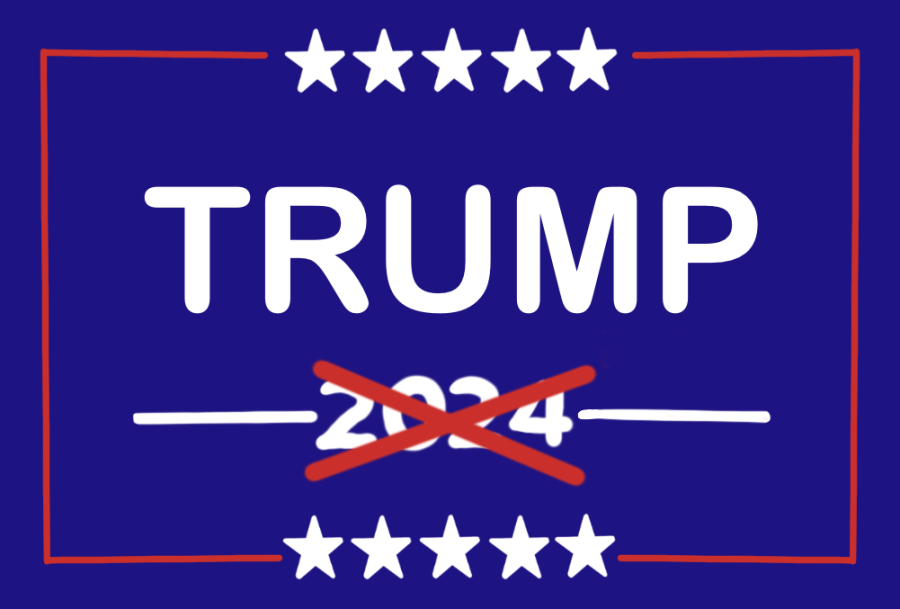A dark cloud over democracy
November 22, 2022
After being largely absent from the political landscape, save for the occasional interview or post on Truth Social, Donald Trump is back to large amounts of fanfare. The former president, who tried to overturn a legitimate presidential election just two years ago, is once again asking the American people to elect him to the highest office in the land. Announcing his intent to run in the 2024 presidential election to a crowd of handpicked friends and supporters at his home in Mar-a-Lago, Trump has firmly reinserted himself into the field of American politics. This has led many to question where his place lies, what his return means for the future of the Republican Party and what it means for the GOP’s chances in 2024.
With his campaign now seemingly underway, Trump has already begun to exhibit one of the main problems his campaign will experience on the road to 2024 — his image and positions are plagued with a stigma of radicalism. During his announcement speech, Trump claimed that he would “be asking everyone who sells drugs, gets caught selling drugs, to receive the death penalty for their heinous acts,” as reported by C-SPAN. This would constitute one of the most unilateral enhancements to the justice system’s power in our nation’s history, should this policy be enacted. Radical stances such as the example given, along with violent rhetoric, have become synonymous with the Trump campaign and will be a great cause of hesitation for independent and moderate voters come 2024.
Additionally, one of Trump’s most significant advantages in the 2016 election was that he was an outsider; he came from the cutthroat world of business, not the polished-marble halls of Capitol Hill. This helped give rise to his popularity and following of staunch supporters; however, now that he has become a familiar face in the American political landscape, it has become harder for him to hide behind that identity. Americans have seen Trump through the political lens for four years, have experienced his fiery speeches and have seen him incite violence. It will be extremely difficult for him to recapture the American public the way he did in 2016 now that he has made a name for himself.
Given the stigma surrounding Trump, should the Republican Party try to move past him? Many would like to argue that rejecting Trump may give the GOP the best chance at winning in 2024, but this may prove hard to accomplish. The fact of the matter is that although his popularity may be declining, Trump still has a significant foothold in the conservative base. According to a study published on Nov. 14 by the Pew Research Center, “Six-in-ten Republicans and Republican-leaning independents (60%) say they feel warmly toward Trump, including 41% who feel very warmly.” This gives Trump a large amount of leverage over the GOP and would indicate that he still has a genuine chance at winning the Republican nomination. But, should he lose the nomination, Trump can sink the Republicans’ chances in 2024 by running as a third-party candidate and taking his base with him. While Trump’s base may not provide the numbers he needs to win the election outright, Republicans cannot possibly win with their absence at the polls, cementing his place in the GOP for the foreseeable future.
Trump is one of the most unique politicians in the history of the United States, and his return to the political landscape spells a lot of uncertainty for the future of this nation; however, while his place in the Republican Party may be uncertain, his influence remains powerful and far-reaching. Despite cries to reject him and abandon him from historic foes and former supporters alike, he will likely continue to be a key player in American politics for years to come.










